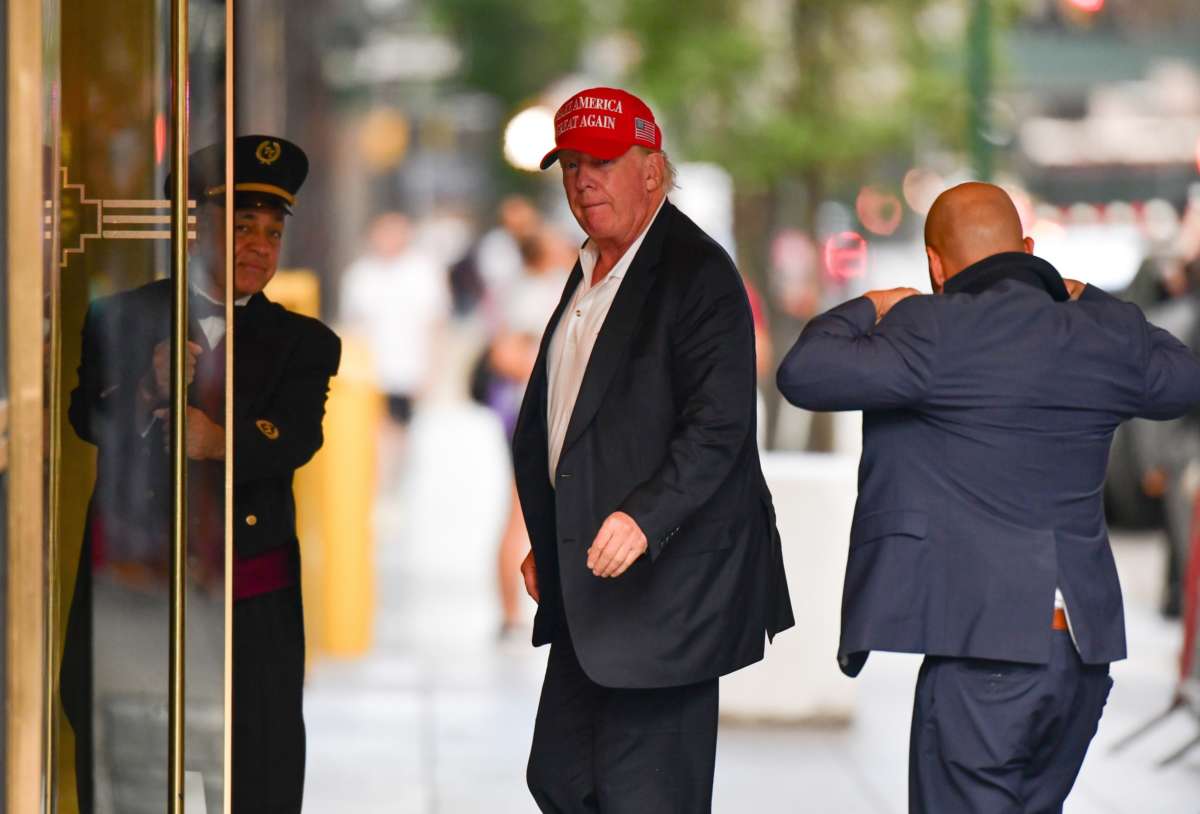On Sunday, a Republican member of the House select committee investigating the January 6 Capital attack said that the commission may seek to subpoena or criminally charge former President Donald Trump.
On the morning of January 6, Trump gave an incendiary speech to his loyalists, claiming that the 2020 presidential election had been stolen and that they must “fight like hell” because they could “never take back our country with weakness.” Directly following that speech, Trump loyalists violently breached the Capitol building, disrupting the congressional certification of the 2020 presidential election. Trump didn’t call off his followers until several hours into the attack.
Because of Trump’s incendiary words and his failure to condemn the actions of his loyalists while the attack was taking place, many lawmakers have suggested that he should be held directly accountable for the attempted usurpation of the 2020 election.
Rep. Adam Kinzinger (R-Illinois), an outspoken Trump critic and a member of the January 6 commission, said during a Sunday appearance on CNN’s “State of the Union” program that the commission is exploring whether the former president can be held criminally liable for the Capitol attack.
“I don’t want to go there yet to say, ‘Do I believe he has [committed a crime],’ I think that’s obviously a pretty big thing to say,” said Kinzinger, who announced in October that he won’t be running for re-election next fall. “We want to know though, and I think we’ll — by the end of our investigation and by the time our report is out — have a pretty good idea.”
The commission will “be able to have out on the public record anything [the] Justice Department needs, maybe in pursuit [of criminal charges against Trump],” if warranted, Kinzinger went on.
In an appearance on ABC’s “This Week” program, Kinzinger said that Trump isn’t the only Republican official that may bear responsibility for the events of January 6, noting that Republican lawmakers in Congress could also face charges.
Kinzinger said that commission members will “let the facts dictate” their final conclusion — and that it’s possible the commission will subpoena Trump in order to discern what he knew the day of the attack, and how he reacted to the events on the ground.
“Nobody should be above the law, but we also recognize we can get the information without him at this point, and, obviously, when you subpoena the former president, that comes with a whole kind of, you know, circus environment,” Kinzinger said. “But if we need him, we’ll do it.”
Trump has so far sought to block the congressional panel from getting records related to the January 6 attack, citing executive privileges he purportedly has as a former president. Should the commission attempt to subpoena him, it’s likely he’ll use that same argument to resist giving testimony.
But Trump’s executive privilege arguments took a devastating blow earlier this month when a three-judge panel in the U.S. Court of Appeals for the District of Columbia Circuit Court ruled that his claims were without merit — and that the commission was entitled to the documents he tried to block.
“The executive privilege for presidential communications is a qualified one that Mr. Trump agrees must give way when necessary to protect overriding interests,” Judge Patricia Millett wrote in the opinion of the court. “The [current] president [Joe Biden] and the legislative branch have shown a national interest in and pressing need for the prompt disclosure of these documents.”
Thank you for reading Truthout. Before you leave, we must appeal for your support.
Truthout is unlike most news publications; we’re nonprofit, independent, and free of corporate funding. Because of this, we can publish the boldly honest journalism you see from us – stories about and by grassroots activists, reports from the frontlines of social movements, and unapologetic critiques of the systemic forces that shape all of our lives.
Monied interests prevent other publications from confronting the worst injustices in our world. But Truthout remains a haven for transformative journalism in pursuit of justice.
We simply cannot do this without support from our readers. At this time, we’re appealing to add 50 monthly donors in the next 2 days. If you can, please make a tax-deductible one-time or monthly gift today.
